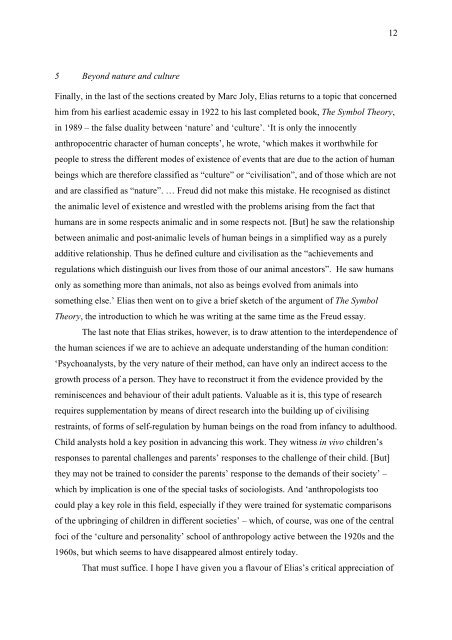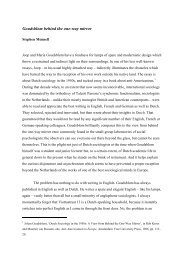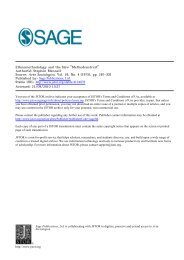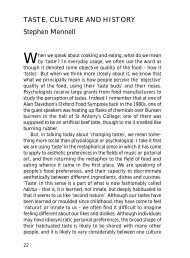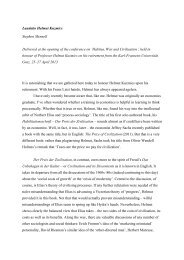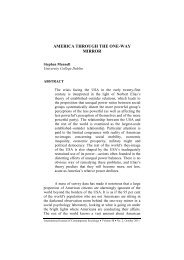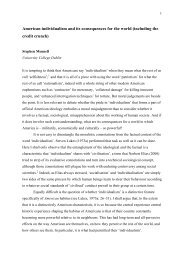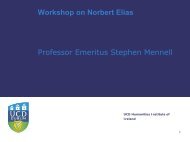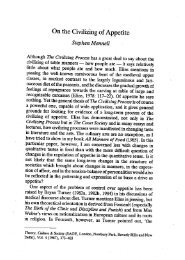paper - Stephen Mennell
paper - Stephen Mennell
paper - Stephen Mennell
You also want an ePaper? Increase the reach of your titles
YUMPU automatically turns print PDFs into web optimized ePapers that Google loves.
12<br />
5 Beyond nature and culture<br />
Finally, in the last of the sections created by Marc Joly, Elias returns to a topic that concerned<br />
him from his earliest academic essay in 1922 to his last completed book, The Symbol Theory,<br />
in 1989 – the false duality between ‘nature’ and ‘culture’. ‘It is only the innocently<br />
anthropocentric character of human concepts’, he wrote, ‘which makes it worthwhile for<br />
people to stress the different modes of existence of events that are due to the action of human<br />
beings which are therefore classified as “culture” or “civilisation”, and of those which are not<br />
and are classified as “nature”. … Freud did not make this mistake. He recognised as distinct<br />
the animalic level of existence and wrestled with the problems arising from the fact that<br />
humans are in some respects animalic and in some respects not. [But] he saw the relationship<br />
between animalic and post-animalic levels of human beings in a simplified way as a purely<br />
additive relationship. Thus he defined culture and civilisation as the “achievements and<br />
regulations which distinguish our lives from those of our animal ancestors”. He saw humans<br />
only as something more than animals, not also as beings evolved from animals into<br />
something else.’ Elias then went on to give a brief sketch of the argument of The Symbol<br />
Theory, the introduction to which he was writing at the same time as the Freud essay.<br />
The last note that Elias strikes, however, is to draw attention to the interdependence of<br />
the human sciences if we are to achieve an adequate understanding of the human condition:<br />
‘Psychoanalysts, by the very nature of their method, can have only an indirect access to the<br />
growth process of a person. They have to reconstruct it from the evidence provided by the<br />
reminiscences and behaviour of their adult patients. Valuable as it is, this type of research<br />
requires supplementation by means of direct research into the building up of civilising<br />
restraints, of forms of self-regulation by human beings on the road from infancy to adulthood.<br />
Child analysts hold a key position in advancing this work. They witness in vivo children’s<br />
responses to parental challenges and parents’ responses to the challenge of their child. [But]<br />
they may not be trained to consider the parents’ response to the demands of their society’ –<br />
which by implication is one of the special tasks of sociologists. And ‘anthropologists too<br />
could play a key role in this field, especially if they were trained for systematic comparisons<br />
of the upbringing of children in different societies’ – which, of course, was one of the central<br />
foci of the ‘culture and personality’ school of anthropology active between the 1920s and the<br />
1960s, but which seems to have disappeared almost entirely today.<br />
That must suffice. I hope I have given you a flavour of Elias’s critical appreciation of


